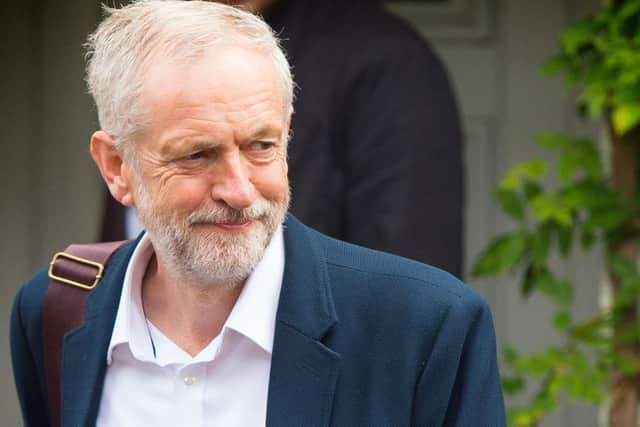Don't write off Corbyn's chances if he can mend the bridges with his MPs


Tebbit was right: Kinnock was a monumental windbag. And, even in the 1992 election, when Thatcher had been replaced with the much weaker John Major, Kinnock still managed to mess up the campaign and lose an election which should have been his for the taking.
Back in February 1975 it was the Conservatives whose pants were being scared off by the prospect of Thatcher as leader. The men in grey suits, Conservative Central Office, the leadership aristocracy, key elements of the membership (this was a time when only MPs voted for the leader) and most of the party’s influential ‘friends’ in the media were worried that Thatcher wouldn’t be able to win a general election. She proved them all wrong: spectacularly so.
Advertisement
Hide AdAdvertisement
Hide AdShe abandoned the centrism of Edward Heath (the worst - and by a very long margin - Conservative leader in my lifetime) and the Butskellism (named after Rab Butler of the Conservatives and Hugh Gaitskell of Labour) consensus which had dominated British politics from the mid-1950s. She took an axe, not to Labour, but to the whole concept of socialism and “Trade Union influence and unaccountability in our Parliament”. She also defied conventional wisdom and took her reformist beliefs to the very working classes who were supposed to be “Labour, come what may.”


After Jeremy Corbyn’s overwhelming victory on Saturday, there were probably many Conservatives who would have remembered and echoed Tebbit’s comments about Kinnock. There were also an awful lot of Labour MP’s preparing themselves for the electoral wilderness. But is it possible that Corbyn could be more Thatcher than Kinnock when it comes to persuading voters to change their minds and rethink their politics?
For one thing, he has a mandate: something which Teresa May doesn’t have as leader (she wasn’t endorsed by the membership, because the only other candidate in the final round withdrew), nor as Prime Minister. Also, as someone who was a Remainer she doesn’t have an election mandate to promote her “Brexit means Brexit” platform, meaning that she’s making it up as she goes along.
But his whopping mandate means nothing if his MPs don’t support him. Labour has three choices at this point; implode, divide (with the creation of a new party), or unite behind a man that most of them clearly despise and regard as an election loser. I suspect that many of those unhappy backbenchers will recall what happened to the Social Democratic Party experiment (created in 1981, died in 1988) and the trouncing that the Liberal Democrats took last year. They will also be aware that the recently announced Boundary Commission proposals give an advantage to the Conservatives.
Advertisement
Hide AdAdvertisement
Hide AdThey also need to work out if they have the time to set up a new party and new constituency structures, as well as raising millions in funding. Do they even have the collective courage to go it alone? Hmm. I’m reminded of the line, “The only thing keeping you upright is the starch in your shirt.” Many of them will probably turn out to be spineless warriors, more concerned with holding on to the seat they have now than risking it by standing under a new banner. Leaving would be the courageous thing to do, but it’s more likely that they’ll take the easier option of “staying in the party I love and trying to change it from the inside. More division and new parties would only benefit the Conservatives”.


Yet Corbyn also needs to be aware that many of the people who backed him at grassroots level are new, anti-Blair, despisers of any manifestation of Conservatism, hopelessly idealistic, reckless with policy commitments and not necessarily in touch with the millions who voted for Blair’s Labour. So he needs to meet his backbenchers halfway and focus on winning an election with a broad appeal manifesto. And that means adopting a coherent position on Brexit: the sort of position which will allow him to exploit the many difficulties Theresa May will face when she finally decides what she means by “Brexit means Brexit”. He also needs to bear in mind that she has the power to call an early general election if she senses Labour is getting its act together.
I wouldn’t write off Corbyn’s chances of defying the odds and doing much better than anyone thinks, particularly if he acknowledges that he cannot win if he doesn’t have his Parliamentary party behind him all the way. That said, I don’t want him to win. I think his ‘vision’ is a retro one; a vision that is just as unrealistic as John Major’s guff about cricket grounds, warm beer and green suburbs. Just as unrealistic as those Leave voters who imagine a return to the days of Empire and ‘plucky little Blighty.”
Politics and leadership shouldn’t be about a return to the past; because a return to the past is never possible. Corbyn knows all about the past and has lost just about every cause he championed. He needs to remember that fact and get to grips with the realities of the future.